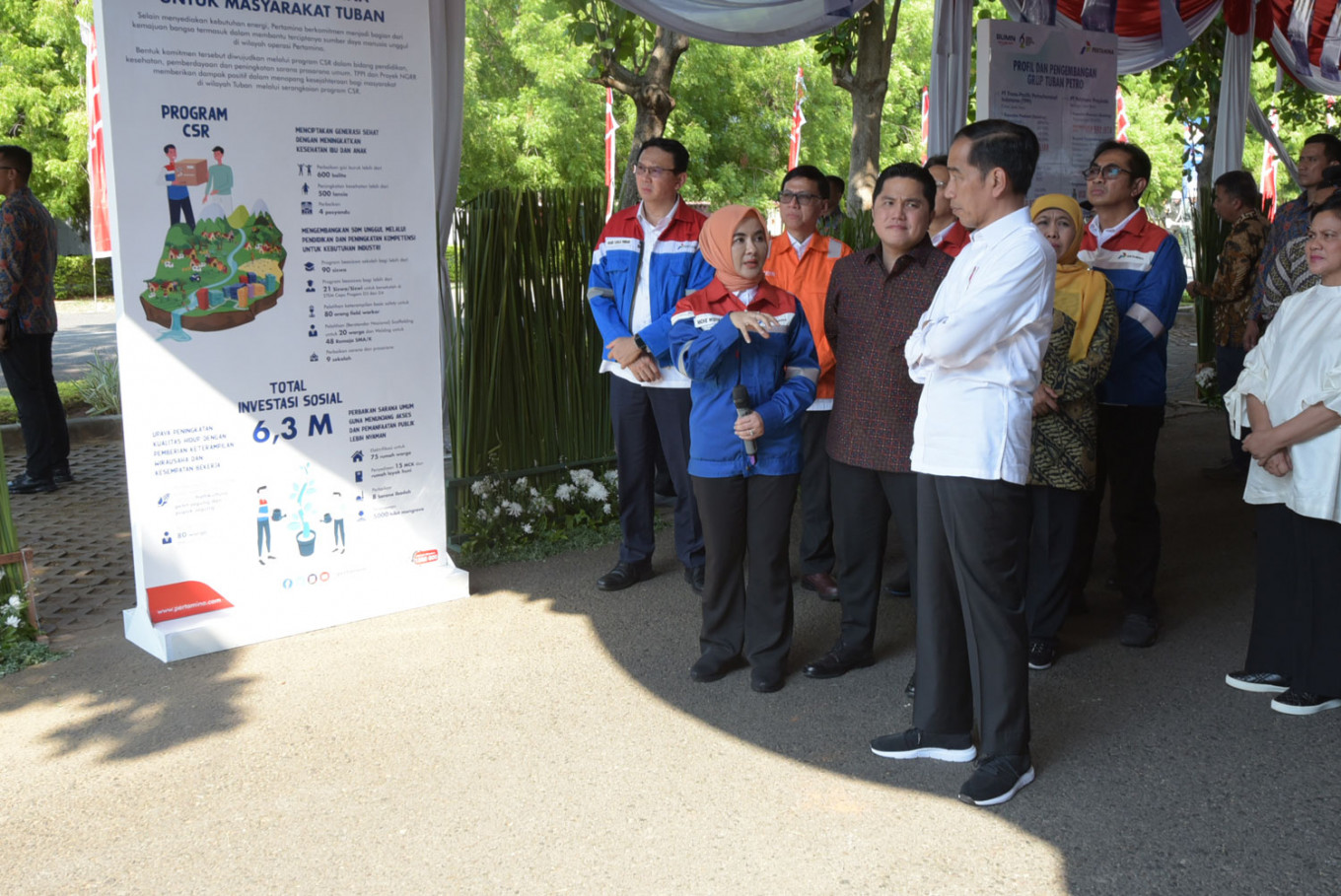Popular Reads
Top Results
Can't find what you're looking for?
View all search resultsPopular Reads
Top Results
Can't find what you're looking for?
View all search resultsLocal products come first
Businesswise, most manufacturers prefer local inputs or intermediate materials whenever their quality meets international standards.
Change text size
Gift Premium Articles
to Anyone
Editorial
Indonesia has many attributes that make it theoretically a coveted destination for foreign direct investment (FDI): Richly abundant natural resources, the largest consumer market in Southeast Asia and a young workforce.
Yet man-made barriers have persistently made the world’s largest archipelago one of the most restrictive countries to FDI as measured by the Organization of Economic Cooperation and Development FDI Regulatory Restrictiveness Index. “Policymakers have yet to demonstrate their intention to establish a clear role for FDI”, declares the latest Organisation for Economic Cooperation and Development (OECD) investment policy review on Indonesia.
Then, Boom. The government enacted the Job Creation Law late last year, designed to remove restrictions and conditions imposed on FDI, centralize and streamline business licensing and land acquisition procedures, adopt a risk-based approach to business licensing and make it a more transparent and fully online process, and drastically reform the labor market.
Even though enforcing such an “all-in-one” law reform package will be a challenge, most analysts believe only a truly bold and comprehensive reform package would make Indonesia competitive in wooing FDI.
But, alas, the adage “the devil is in the detail” seems well fit for the Job Creation Law.
Two of the 50 government regulations already issued to implement the Job Creation Law turn out to be even more restrictive. The two regulations on industry and trade, respectively, allow the government to intervene in companies’ decisions to access imported inputs (raw materials and intermediate goods) and to export.
These policy instruments are designed to enforce the government policy of local content requirements for the various segments of the manufacturing sector. The rules introduce a commodity balance that manages when manufacturers can import industrial inputs or intermediate goods and when they can export their products without impairing local supply.
Such regulations are not strange as most countries also take preferential measures for local products. But businesswise, most manufacturers also prefer local inputs or intermediate materials whenever their quality meets international standards. They still prefer local products even when their prices are up to 20 percent higher than foreign products because the logistics of the procurement is much easier and less time consuming and the import bureaucracy is less hassling.
Such preferential treatment is even more relevant for Indonesia as local manufacturers are less competitive against foreign suppliers because such inherent problems as inadequate and poor infrastructure make the capital cost of building factories much higher, local credit interest rates are higher and the bureaucratic process of all things is more time consuming and complex.
The problem is always in the policy implementation, how the government will ensure that the data gathered for setting up the commodity balance to make import and export are reliable and comprehensive. The next concern is how the government will ensure that competition between domestic suppliers who benefit from the local content requirement is fair and transparent, not exploited by brokers in collusion with corrupt officials.
Poor or even manipulated enforcement of the local content requirement may divert potential FDI away from Indonesia, depriving the country of a relatively more stable source of capital and foreign exchange and restrain competition and potential short-term gains in targeted industries.










